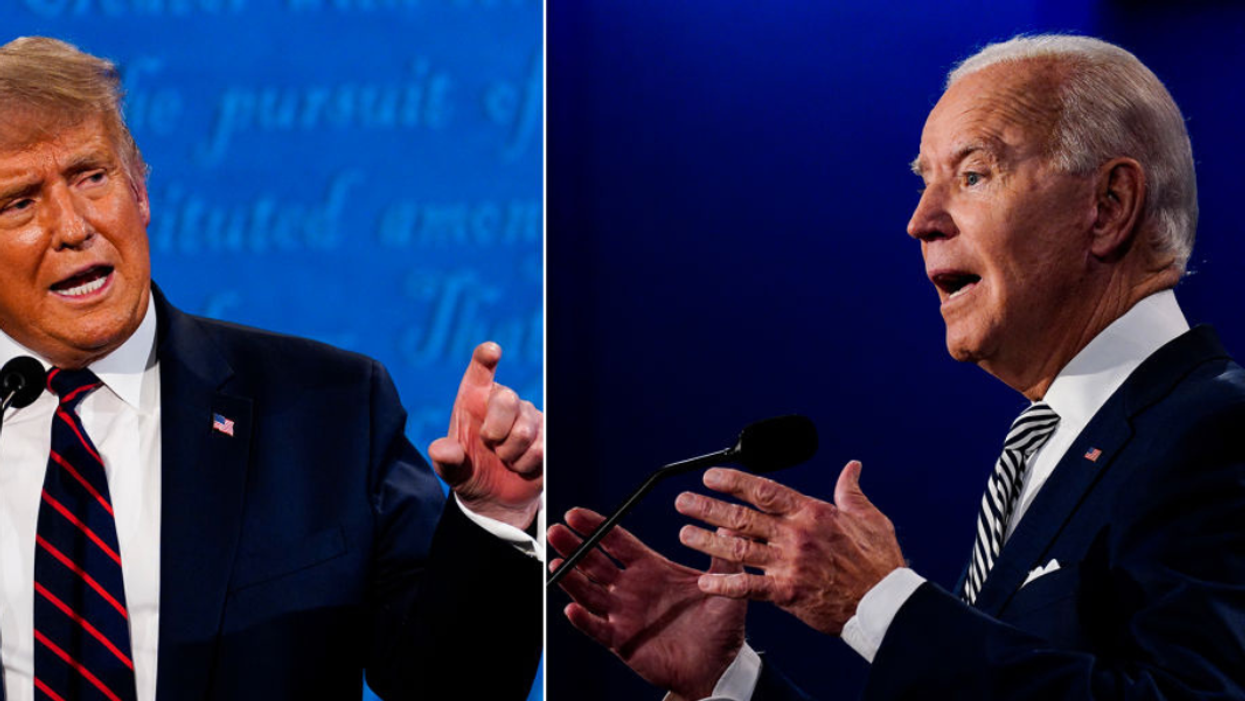Davies is a journalist and podcaster. He runs the podcast consultancy, DaviesContent and co-hosts “How Do We Fix It?” and “Let’s Find Common Ground.”
It’s really difficult to get excited about the next election— now less than 18 months away. The prospect of two old men facing each other for a rematch may do more to depress voter turnout than anything cooked up by opponents of electoral reform.
Both Biden and Trump are overwhelming favorites to win their parties’ nominations. But seven-in-ten Americans don’t want the President to run again. And Trump’s disapproval ratings are even worse than Biden’s.
Despite enormous issues at stake, including the very survival of our democratic system, many millions of Americans may turn away from politics altogether during the long, exhausting campaign.
With Joe Biden running for re-election his party faces an enthusiasm gap. That may have a decisive impact on turnout. A Washington Post poll this month found that 63 percent of voters don’t believe that he “has the mental sharpness it takes to serve effectively as president.”
The same poll asked Democratic-leaning voters: “would you like the Democratic Party to nominate Biden to run for a second term as president in 2024, or would you like… someone other than Biden as its candidate for president?” 58 percent want an alternative candidate.
This may help explain why, despite his manifest and alarming flaws, Donald Trump appears to be ahead of the President in a hypothetical rematch.
Many Democrats are resigned to supporting the President’s re-election bid. “Biden’s reelection is predicated on his ability to win over a significant number of voters who don’t think highly of him, but who think even less highly of Trump,” wrote Amy Walter in The Cook Political Report. “The hope among Democrats is that the risk of nominating an 82-year-old candidate is just slightly less risky than the one Republicans are taking if they nominate Trump.”
But many party professionals are worried about how Biden will fare during speeches, interviews, and debates during a long campaign. He often slurs his words, mumbles or looks confused. The President seems frail.
By contrast, “Donald Trump is, as a performer, in a class of his own,” wrote journalist and blogger, Andrew Sullivan after the New Hampshire town hall event last week on CNN. Political pundits said Trump appeared energized and in command. “He may be one of the most effective and pathological demagogues I’ve ever encountered: capable of lying with staggering sincerity, of making up stories with panache: shameless, and indefatigable,” said Sullivan.
The 2024 political season is just beginning. A great deal may change. But if you feel disenchanted and depressed by the choice voters may well be presented with, you are not alone.




















Trump & Hegseth gave Mark Kelly a huge 2028 gift